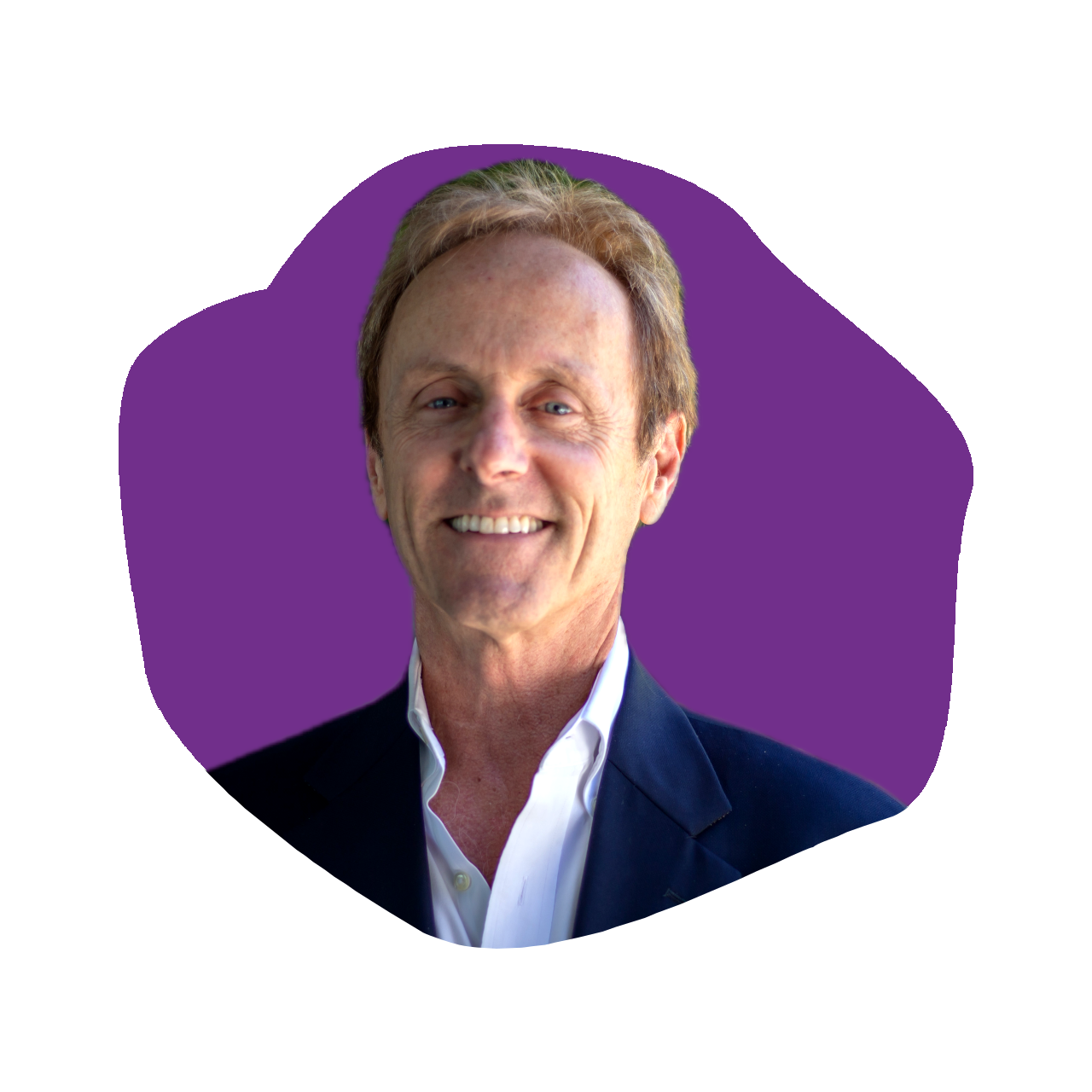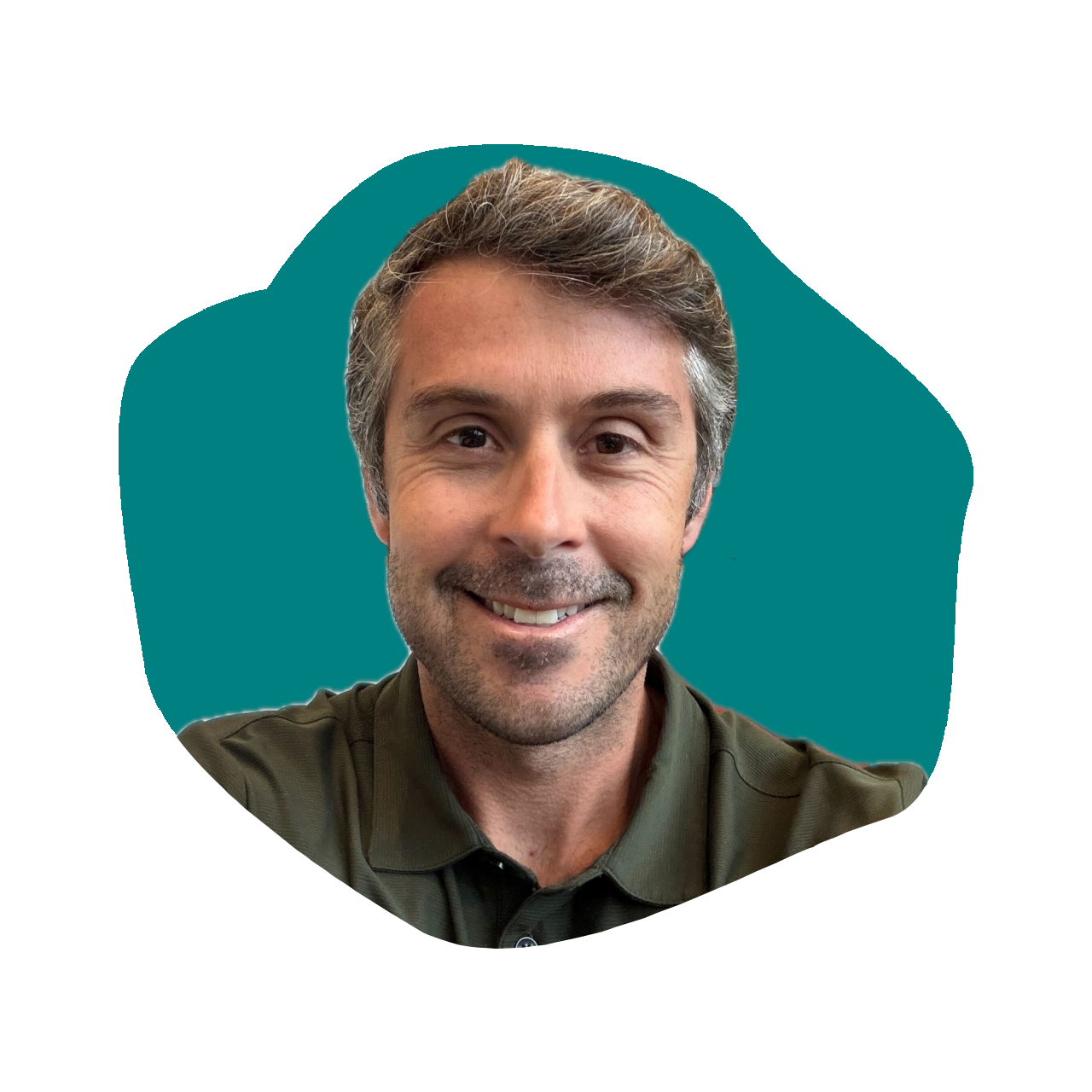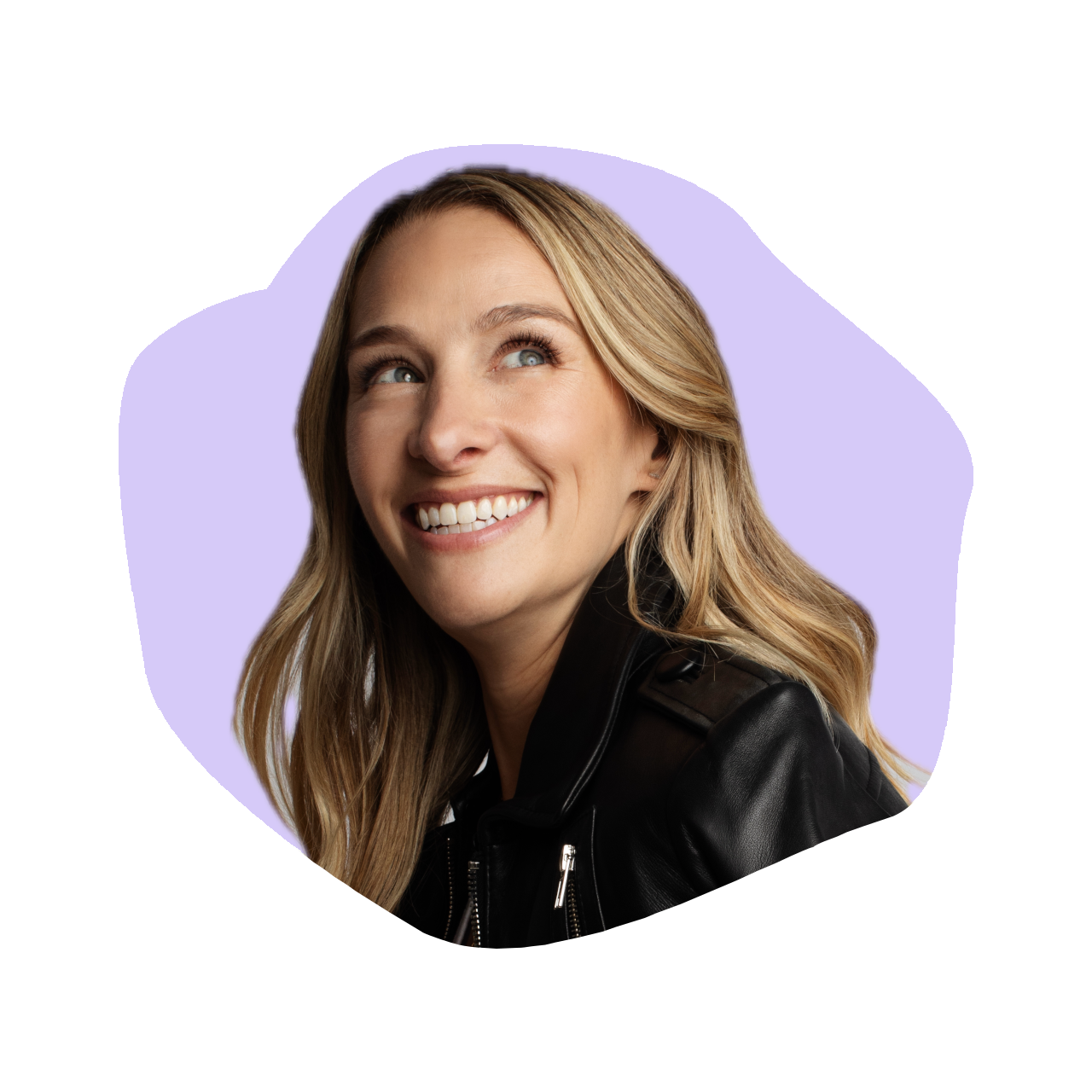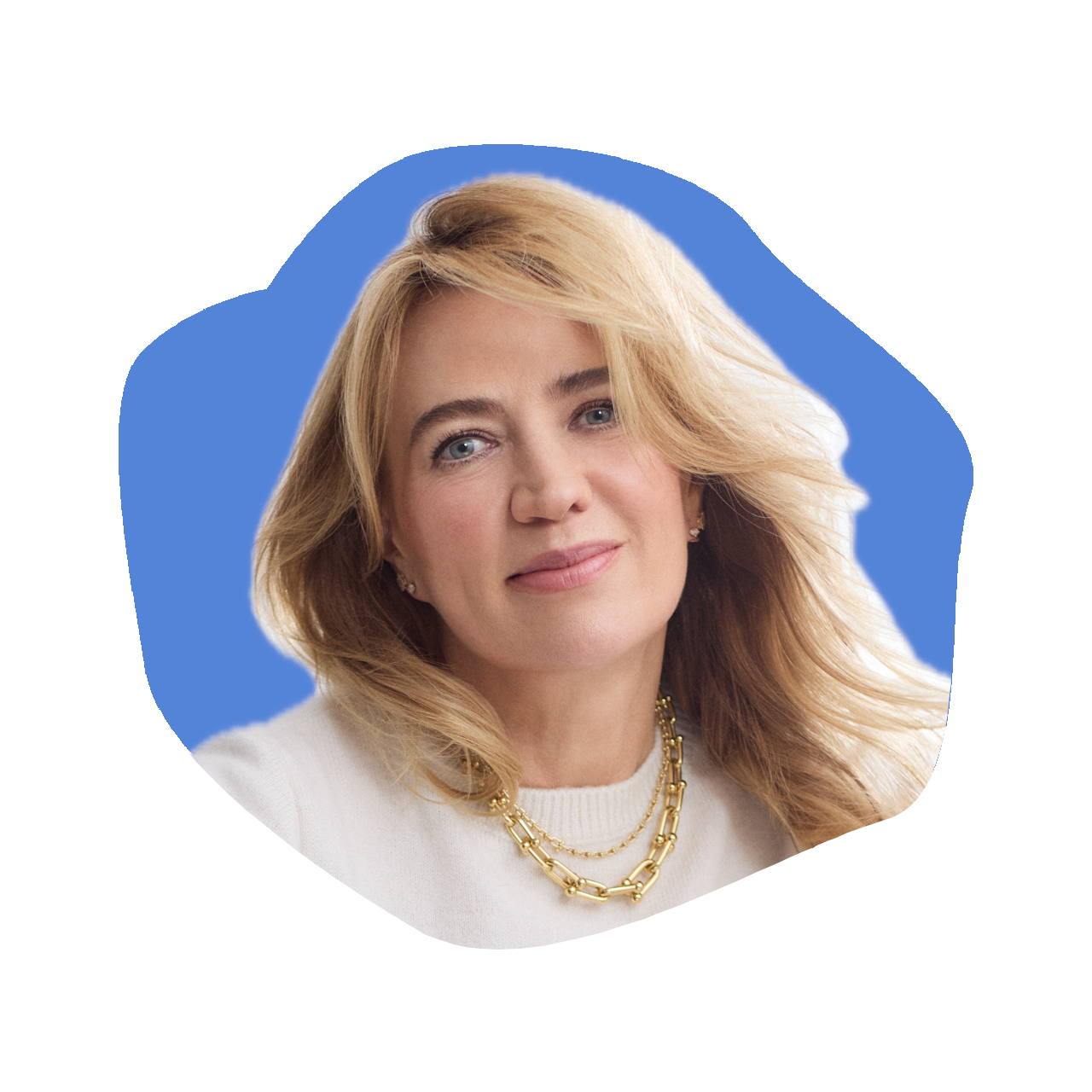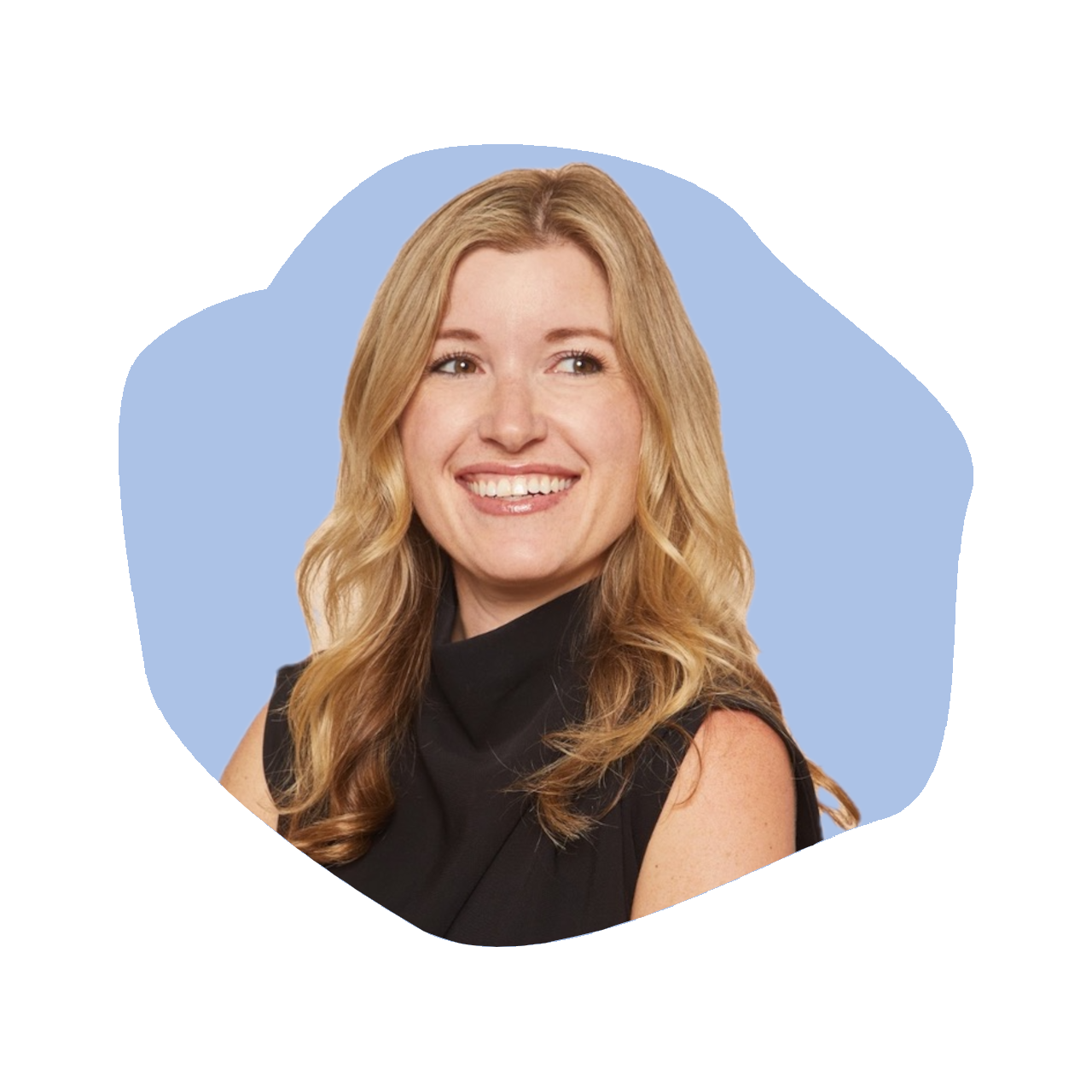Lauren Chew: Founder & CEO of Love + Chew
Episode 592
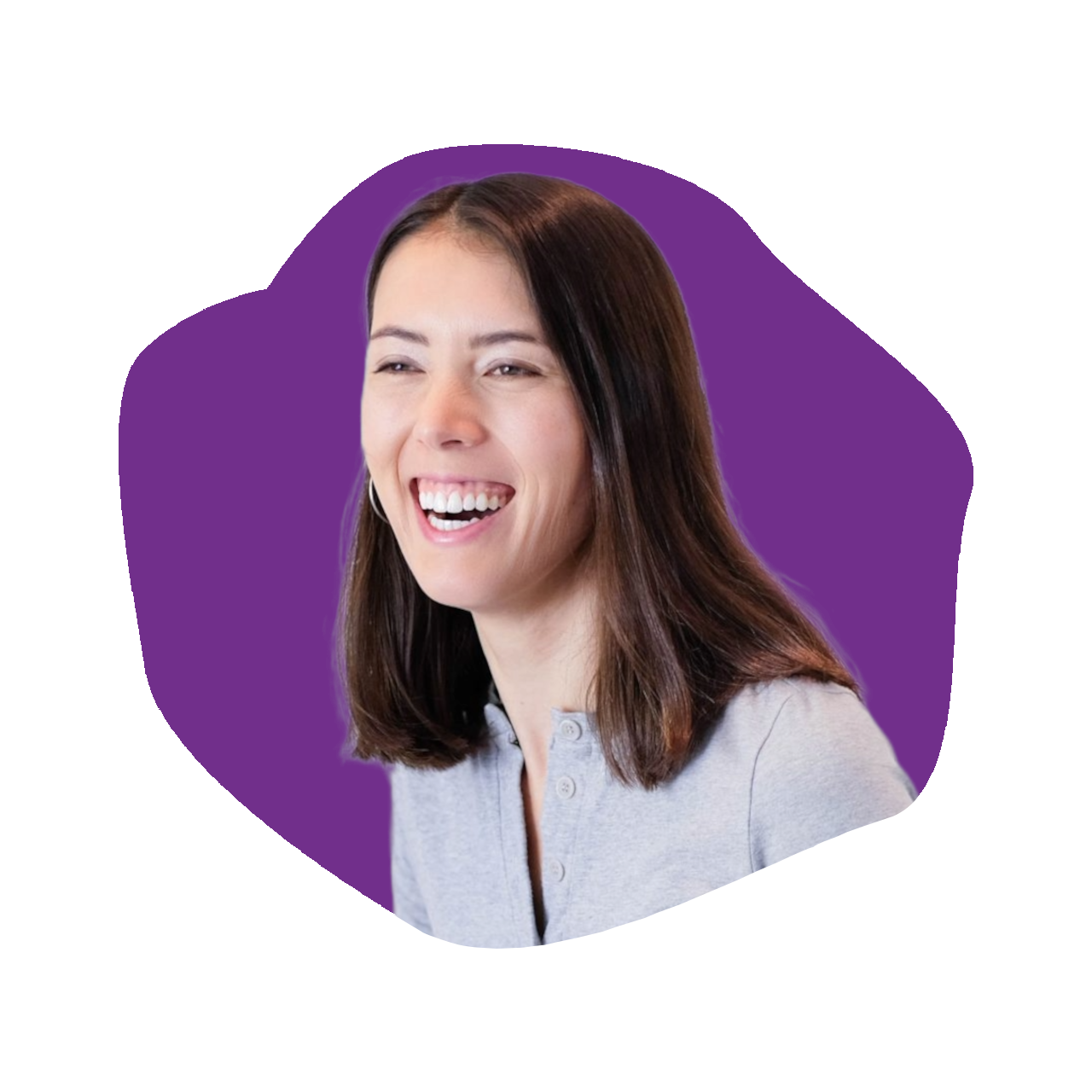
On this episode of The Kara Goldin Show, we’re joined by Lauren Chew, the Founder and CEO of Love + Chew. Lauren’s entrepreneurial journey began when she adopted a vegan lifestyle in 2018, leading her to rethink her diet, including sweet treats. In 2019, she turned this passion into a business, crafting the first Love + Chew cookies in her San Francisco apartment. These plant-based cookies, made with wholesome ingredients like dates, chia seeds, and almond butter, quickly gained a loyal following. Lauren has bootstrapped her business from day one, growing Love + Chew into a brand now available in over 2,000 stores, including Whole Foods Market, Sprouts, Costco, and Amazon. In our conversation, Lauren shares her insights on building a brand, the challenges of being a solo female founder, and her approach to sustainability in the food industry. Whether you're interested in plant-based foods, entrepreneurship, or scaling a business, this episode offers valuable lessons and inspiration. Tune in to hear Lauren’s incredible journey and discover how she’s making her mark in the food industry with Love + Chew. Now on The Kara Goldin Show.
Resources from
this episode:
Enjoying this episode of #TheKaraGoldinShow? Let Kara know by clicking on the links below and sending her a quick shout-out on social!
Follow Kara on LinkedIn – Instagram – X – Facebook – TikTok – YouTube – Threads
Have a question for Kara about one of our episodes? Reach out to Kara directly at [email protected]
To learn more about Lauren Chew and Love + Chew:
https://www.instagram.com/loveandchewbrands/
https://www.linkedin.com/in/lauren-chew-123456/
https://www.loveandchew.com/
Transcript
Kara Goldin 0:00
I am unwilling to give up that I will start over from scratch as many times as it takes to get where I want to be. I want to be you. Just want to make sure you will get knocked down. But just make sure you don’t get knocked out, knocked out. So your only choice should be go focus on what you can control. Control. Hi everyone, and welcome to the Kara Goldin show. Join me each week for inspiring conversations with some of the world’s greatest leaders. We’ll talk with founders, entrepreneurs, CEOs and really, some of the most interesting people of our time. Can’t wait to get started. Let’s go. Let’s go. Hi everyone, and welcome back to the Kara Goldin show. So, so excited to have my next guest. Here we have Lauren Chew who is the founder and CEO of Love + Chew. And if you have not tried Love + Chew, you must, must, must get your hands on this incredible product, and if you’ve tried it, and of course, love it, you definitely need to grab some more. So Lauren’s entrepreneurial journey unexpectedly started in 2018 when she adopted a vegan lifestyle and had to rethink her diet. This shift led to her creating her first iteration of Love + Chew cookies in her San Francisco, Noe Valley. I don’t know if you moved since then, but Noe Valley apartment, yeah, so, so the plant based cookies made with wholesome ingredients like dates and chia seeds and almond butter have since gained such a loyal following now in over 2000 stores, including Whole Foods, sprouts, Costco, Amazon, all kinds of incredible stores, which I’m sure most of you would love to see this product in, if they’re not so I’m so excited to dive into Lauren and her journey, and hear how she started. It grew, it and all of the rest. So thank you so much Lauren for being here. Very, very excited.
Lauren Chew 2:09
Thank you so much for having me. I’m so excited to be here. Okay,
Kara Goldin 2:14
so before we dive into the backstory of Love + Chew and sort of how it actually began. Could you share a bit about your background, like, how did this all come about?
Lauren Chew 2:27
Yeah, so I actually grew up in sunny San Diego, California, and ever since I was a young child, I was very conscious about what it meant to like, eat, consume animals. And so I grew up with pets. I had dogs growing up, and I just knew, even as like a four year old, that I just didn’t want to eat animals. And so I was constantly telling my parents growing up, look, I really would like to go vegetarian or even vegan. I don’t want to eat animals anymore. And they’re just like, that’s nice. My mom is Polish, my dad is Chinese, both very meat heavy diets in both of those cultures. And they’re like, that’s nice. When you move out when you’re 18, then you know you can go vegetarian if you want. And I was just like, Okay, fine. And so when I moved out and I went to college, that was when I became vegetarian. So it’s something that, you know, I’ve been really thinking about, honestly my whole life.
Kara Goldin 3:28
So you, you know, you move out, you go to university, you are more and more focused on vegan lifestyle. And I think you went on to work at Tesla and in STEM. Is that? Is that correct? Totally different than being in the food industry. So what inspired you then to actually go and launch a company like you have?
Lauren Chew 3:56
Yeah, I mean, I kind of think of myself a little bit like an accidental entrepreneur. So, you know, I was vegetarian. I am vegetarian slash vegan, like for most of my adult life, I’m working in tech. I’m working really long hours, and I really decided I was eating a lot of junk food, because it’s honestly really easy to eat unhealthy on a vegetarian or vegan diet. And you know, I was eating a lot of, like, processed food from Trader Joe’s, for example. And I realized I needed to, like, get back to basics. So I learned more about, like, a whole foods plant based diet, so more of a focus on, you know, vegetables, legumes, fruits, and so I really shifted towards that direction. And then I went fully vegan. And so I started messing around in the kitchen, and I started doing, like, a lot of different like, vegan baking. And you know, vegan baking is, like, very different than traditional baking, right? Because, like, you can’t use, like, eggs or butter, and you need. Find replacements to kind of bind everything together. And there’s a lot of different things that you can do, but I landed on what’s called the chia egg. So it’s basically adding water to chia seeds. It becomes very gelatinous, and it becomes essentially an egg replacer, and using that in a lot of my different recipes. And so, you know, I just started out, kind of just baking delicious vegan cookies and muffins at home and kind of sharing them with my friends and family.
Kara Goldin 5:28
So this was a side hustle. You kept your job, your baking, and was there a product or an entrepreneur or an idea where you said, Gosh, I mean, here you you’ve worked at Tesla. I would imagine maybe Elon Musk gave you some inspiration somewhere along the way. But, like, was there a moment when you thought, why don’t I just actually take these to market? Yeah,
Lauren Chew 5:57
so I was getting amazing feedback, because everyone was shocked that my cookies were vegan and that they tasted so good. And so I have a background in, like, technology sales, so I decided basically to just show up to a couple of, like, the local grocery stores in San Francisco with essentially just like, samples and Ziploc bags of my product. And I was like, if you like this, like, Would you buy this? And they said, Yes. And so that’s when I was like, Okay, I’m gonna start a home cottage operation and start selling my cookies on the side to local grocery stores and coffee shops.
Kara Goldin 6:35
And was that, did you have to get, like, a commercial kitchen, or anything like that? I mean, did you probably didn’t know anything about this. You were, like, just asking so many people, right? And trying to do your own research on the side. Yeah.
Lauren Chew 6:48
So I was talking to a lot of people in industry, but I actually started out baking in my apartment. So I had a home cottage operation license. I ended up applying for one, and it was just something that I would do, like, nights and weekends. I would hand deliver cookies to coffee shops and, like, get paid in cash. And then my friend, I realized it was a scalable business when my friend introduced my cookies to one of his corporate offices, and they ended up loving them, and they ended up getting a PO for, like, two pallets. And then that’s when I was just like, Okay, I can’t fulfill this order by myself in this tiny apartment. And a friend was like, Have you heard of a co manufacturer? Maybe they can help you fill your PO. And so that’s when I started looking for a co man to fulfill that po
Kara Goldin 7:40
and what was the point when you actually left your your job? What were you doing at that point?
Lauren Chew 7:46
I was, I was running sales at a startup, so
Kara Goldin 7:52
and so you just, what was the point? Was it that when you were getting your two pallets in, when you thought, I need to dedicate my time and effort to this.
Lauren Chew 8:02
It was, it wasn’t like, until a couple years in, that I felt comfortable enough to quit my day job, because I can be a little bit risk adverse and, you know, like, it’s a big leap, right? And so it’s financially a big leap as well. So I was doing both for about the first two years.
Kara Goldin 8:22
And so you’re a solo female founder with this, you know, unique concept, but also challenges, right? Where you’re jumping into a new industry that you didn’t know much about, you’re curious, which I think is, is such a key attribute, I think, for any founder to be able to, you know, ask questions, be be humbled by being stupid, right about you know what you’re what you’re getting into, right? And I’ve been there for sure. But how did you overcome this? Because here you are, especially leading a sales organization, you’re sort of, it’s almost like you had to wear two different hats every day, right? You’re, you’re educating people, you’re motivating people, and then, you know, your evenings and weekends, you’re sitting here saying, like, Okay, how do I do that? What you know, you’re asking all the questions, versus actually being able to give any of the information. Yeah,
Lauren Chew 9:22
I mean, that was the hardest, like, transition point for me at that point, because, like, when you’re working at a company, even if it is like an early stage startup, like, you still have a boss, and they’re kind of telling you what to do, and they’re providing the strategy and the day to day, whereas, like, when you’re just by yourself, like, running your own small business, like you almost, like, for me personally, like, I had doubts. I’m like, am I is this the way I’m supposed to do this? Like, is this how I’m supposed to spend my time? I just, like, had questions all the time. But luckily, I was able to, like, forge connections in this. PG community, especially in San Francisco, and then eventually, like, I had a Rolodex of people that I could call that would pick up the phone and answer my questions. So that helped a lot.
Kara Goldin 10:10
That’s amazing. And so did you feel like you knew these people even before you were starting your company? But you didn’t really know that you knew them? Like, did you start? I feel like that. That’s kind of, you know, they say your network is your net worth, but so often we don’t even, like, take the time to sort of dig into who do I know, or who do I know that might know somebody kind of situation. I
Lauren Chew 10:36
mean, I basically sent out an email to all my friends. And I’m like, when I was first starting. I, like, didn’t even really have, like, I just had delicious vegan cookies I baked at home. And I was just like, do you know anyone that works in CPG, and can you introduce me to them? Like, that’s like, literally how I started. But even today, like, like, people DM me, and I’m sure you on like, Instagram and Tiktok and LinkedIn. Like, people are not as far away as you think they are. Like, I don’t even think these days you need a warm intro, honestly, yeah, and then showing up to networking events too, like the naturally events, etc, showing up I walked like the Fancy Food Show, you know, like showing up to shows, talking to people. I mean, that’s really how you get your feet wet, and that’s like, also how you learn too.
Kara Goldin 11:27
Yeah, no, absolutely. So working capital, obviously, is, is such a key piece of being able to not only scale your business, but also stay in business, right? So, and you have, you’ve self funded the company. You’ve been really scrappy, but very strategic. I think about, how do I actually, you know, grow this company? But also, what do I spend money on? How do I do it? So can you talk a little bit about kind of that and and also the challenges with it that you’ve seen?
Lauren Chew 12:06
Yeah, I mean, not raising outside capital, I think, has been a blessing and a curse. So, like, I’ve, I’ve always worked with, like, very limited resources, so I’ve really scrutinized every marketing dollar. But that being said, we’ve had to turn away like, certain opportunities because we felt like the ROI wasn’t there, which I do think is a blessing in disguise. Um, I think if you’re a venture backed business, there’s definitely like, the opportunity to scale like much, much faster, especially like the poppies and the ollie pops, like, you know, they’re at like, hundreds of millions of dollars now, within five years, which is, like, definitely not the case for levenshu. But I feel really good about the path that I’ve taken. I feel like I’m in control of the company’s destiny, and I feel like it gives me a lot of flexibility in terms of running the business, in terms of working capital. I mean, we looked at a bunch of different options. It’s pretty tough there right now, but we were, we were lucky to secure a line of credit for the a small line of credit for the business to fund inventory. But it’s definitely constantly a balancing act, for sure.
Kara Goldin 13:18
Yeah, that’s definitely how much do you think like you need to have in terms of margins? When you think about, I was talking to an entrepreneur the other day, I mean, I just think like, if you’re walking in and, you know, it’s already tight, your margins are hardly, you know, they’re, you know, by the time you end up getting a distributor and a broker, and, you know, just depending on whatever industry you’re in, you gotta have a lot of Mars in there, right, and in order to be able to make this business work. But what has been your experience with that, and sort of, What’s your thinking? What would you share with a friend about that?
Lauren Chew 14:00
Yeah, I mean, I feel like five years ago, people said like, minimum 55% gross, but now I’m hearing like 65 to 70 gross, just because the cost of doing business, especially in retail, is insane. Like, as you alluded to, like, you pay 5% to the broker and, like, the marketing spend in terms of, like, running promotions like now there’s, you know, in some large retailers now there’s like fees just for new fees, just for running the promotion demos, any type of trade, trade shows. So, I mean, we’re not at 65% to be completely honest, but I’m trying to move towards that to build a healthy, sustainable business. But then also what I’m doing is, like, I’m very careful we don’t use brokers for every single customer. So like, we save 5% there, and there’s other things that we do to save, but still have, you know, still support the account and have a good results and maintain velocities well. And
Kara Goldin 14:59
I think as you. Start to grow the business too, that you’ll, you know, if you have growth, then you start to, hopefully be able to get some cost savings across the board too. So, so that definitely comes into play. So how do you when you think about your product? I mean, obviously you started, you didn’t see this kind of company on the market. You’re in many ways, there’s a lot of education around it too. Because people hear the word cookie and they think, you know, it’s going to be one thing. I think when they hear the word like vegan cookie, they think, Okay, I’ve got to make an exception in my head and for taste. And I think you guys have done a terrific job, but yet you still need to get people past, you know, that initial like, what am I going to get right? So that’s, that’s a real, you know, big piece of yours trial and and getting people to, you know, I think once people try it. It’s, it’s a good thing. But, you know, getting people there, I think, is, is always hard. How have you been able to overcome that?
Lauren Chew 16:08
Yeah, I mean, demoing is a big piece. Also, like in the early days, when I first launched into retail buyers, really wanted to put us in the bakery section, and we’re not like a fresh baked cookie that lasts two days. So I quickly realized that was not where we were supposed to be, and so I did some trial and error. We we did like cookie aisle, and I really realized, because of our format and because of the functional aspect, we have seven to 10 grams of protein per cookie. We have clean ingredients. We have a skew with upcycled ingredients. We really belong in the nutrition bar aisle. That’s where we see the highest velocities. We also stand out in the sea of bars. Like, there’s a bazillion different types of bars, right? But like, isn’t it way more fun to eat a cookie? So that’s really how we’ve been able to differentiate ourselves. So, yeah,
Kara Goldin 17:03
that’s, that’s amazing, and, but that’s a competitive area of the store too, right? I mean, like, really competitive, right? And so where do you think? I mean, what’s been, sort of the hardest lesson, maybe something you didn’t know when you first walked in. I mean, obviously you’re I love the fact that you understand that you’re directing your destiny in many ways, because many people that I’ve talked to over the years are like, Okay, well, you know, they’ll only put us in this area because we’re called a cookie. And then if that’s the case, then, you know, I mean, you’re you kind of kill yourself right before you even get started. I mean, I’ve always said to people, I’ve suggested to people over the years, maybe you should change what you are, right? Maybe you don’t call yourself a cookie, all of those kind of pieces, so that you can actually stand a chance. But what are the thing? What are some of the things that you’ve learned about this business and sort of you know how you can kind of help others to give you success, I guess, to so to speak, that you didn’t know when you first got in, I
Lauren Chew 18:20
think I really underestimated the amount of cash this type of business really consumes and needs to support it, just in terms of, like, inventory, the cost of doing business with distributors. I would say, just to, like, expand on that working with national distribution can be a challenge, and so I feel like I did go into it eyes wide open, and I understood what it would look like, but you’re very much playing their game, especially when you’re a small brand. I would love to scale love and shoe, where we’re doing like, 10s of millions of dollars through a particular distributor, and then maybe we have more leverage at that point. But that’s not our reality today. But just knowing kind of like distributor dance and talking to people and understanding the timing of when to enter distribution. The great thing about CPG is, depending on the type of product you have, there’s other channels outside of retail that you can sell into first that are less expensive, and you can find product market fit there and tweak your packaging, etc. So, so
Kara Goldin 19:30
packaging is such a critical piece of any brand like it’s it’s important, obviously, to have a brand that stands for something that has great taste, but packaging is also so key. So are there any lessons that you’ve learned in the packaging aspect of your business?
Lauren Chew 19:50
Oh, my God, so many. Yeah, so we changed our packaging probably five times, five to six times. It’s been many times. Over the years, we did a name change, like we first started as complete eats, which was problematic because people didn’t know how to spell it. They thought we were like a meal prep company. Our packaging was hard to read. It was like these light pastel colors. And then we evolved from there. The biggest piece of advice I give to folks that are just starting a CPG brand is keep the packaging flexible. Like, just use, like, printed stickers, like, don’t go to the printed film or the printed pouches or cans until and make that commitment to, like, buy plates and things like that, until you really kind of put your product on the shelf, you understand, you know where you’re supposed to be in the store, what the product call outs should be, what colors your packaging should be, etc. Otherwise, you’re going to spend a lot of money, like redesigning your cheek, and you’re going to a lot of dead stock packaging too.
Kara Goldin 21:00
Yeah. Well, I think it’s, it’s key, especially in your category, I think you’re sort of allowed to do that like I think it when you get into, you know, other categories, that might not be the case, depending on how regulated the the that category or industry is, but, but I think especially for what you’re doing, and, you know, while you’re in sort of testing mode, I think, and really getting it out of the gate, I think, do it in a way that you’re able to kind of get some feedback from the real consumer that’s purchasing the product and see sort of if that’s going to make that big of a difference. Couldn’t agree more. So when you think about those tough days, I always say to people that the consumer feedback is like the thing that you know keeps those founders going for sure. You know, obviously you’re going to have some negative feedback along the way. Everybody gets that. You can’t be perfect for everybody, but it’s those, it’s those love letters, right? That you get from consumers that are like, Oh, finally, like this product is out there, Lauren, and loving chew and everything is, you know, can you remember maybe that first one, or the most impactful one that you ever got, that you were just like, Wow. This is this is just amazing.
Lauren Chew 22:25
So this actually happened to me today. So I just want to share it, because I felt like it was so serendipitous. But I posted on Instagram kind of a slider announcing that we’re in Costco, Bay Area right now for a limited time, all locations. And I posted this letter, kind of just like going back showing, like our old packaging, and then me performing, like one of our first demos at Buffalo market in the Castro as well as, like some other images of me, you know, along the years. And anyway, the manager of buffalo market commented on Instagram, and she was like, I remember when you came in and you demoed, and I thought your cookies were amazing then, and I can’t believe you’re in Costco now. And I was like, Wow. That was like, So, or whatever, I can’t believe you’ve you found me. You know, it was amazing. That’s so
Kara Goldin 23:15
that’s so amazing. And I think, yeah, it’s funny. I mean, we’re both in the Bay Area. Woodlands market was our first like, well, Whole Foods in San Francisco and woodlands were kind of the same. But I still, I walk into woodlands, and hint is still huge, you know, almost 20 years ago now, but, and it’s, I mean, it’s crazy, because I say to them that, you know, if you wouldn’t have given me that shot, I mean, it wouldn’t be here today. And I really believe that too. It’s like those early consumers, and you really have two consumers, I for those people who maybe haven’t thought about this, but it’s not just the consumer who’s purchasing it, but it’s also the person that’s giving you a shot to get on the shelf. I mean, it’s, it’s so, so key, so key trends in the plant based and health focused food sector is, is, you know, constantly changing. How do you focus on, like, what’s really important? And maybe, you know, this sort of leads into innovation, like what you should be really bringing to market. How do you think about that? Yeah, no,
Lauren Chew 24:28
it’s great question. I mean, we really listen to our community. So last year, we introduced an upcycled ingredient. Cookie has two upcycled ingredients, upcycled oat flour and upcycled citrus fiber, and we baked it into our cookies. So basically, upcycled oat milk flour is a byproduct of the oat milk production process, and it would normally just be thrown away, but we partner with a company that dehydrates it and mills it into a flour. So we’re the I like to call this the. First, like upcycled protein cookie on the market. I think I sent you some. They’re delicious. And then I’m also working on an allergen friendly line, because a lot of our customers are, you know, like me, young moms who have toddlers, kids in school. We have a mini size, and they’re like, these cookies are great. They have such clean ingredients, but they’re not school safe. So that’s what I’m currently working on right now.
Kara Goldin 25:29
I love that, yeah, and really paying attention to class one allergens and, yeah, super, super key. So last question, what’s the most rewarding thing that you’ve learned in your entrepreneurial journey. I mean, you supported entrepreneurial style companies before, but now you’re doing it right. And what do you think is kind of the most rewarding thing that maybe you just didn’t know until you’re where you are today?
Lauren Chew 26:00
I think that becoming an entrepreneur has really tested my boundaries and, like, really put me outside of my comfort zone. And I’ve done things that, like, I never thought I would do, like, yeah, I’ve pitched on stage, I’ve, you know, I’ve done crazy things. Like, I’ve flown across the country to meet a buyer like, you know, and they weren’t expecting me necessarily, you know, I’ve just really pushed myself outside of my comfort zone. And I also think the most important thing is that, like, I’m still learning every single day, and that I still love it, and I just like, I’m so grateful for this journey. And I know it’s kind of funny. I’m sure you feel the same way, but like, I was making a comment to my husband, like, maybe after love and shoe at some point in time, I’ll go back to being an employee again. And he was like, no, like, you’ve seen the other side. You can’t do it again. Like it’s hard, yeah, start another company.
Kara Goldin 26:56
Yeah, no, absolutely. It’s so true. I agree with them. It’s uh, but you’re doing something that I think has, you know, a lot of impact and helps a lot of people. And you should be really proud, and I’m excited for you. I mean, everything that you’ve done to date, I mean you’re, you should be really, really proud. And I love it. I love it so well. Thank you again. Lauren, founder and CEO of Love + Chew, everyone needs to try it. We’ll have all the info in the show notes, but everyone needs to head into head to their website, also available in many, many stores, including Bay Area Costcos. So very, very cool. But thank you again, Lauren, so nice to meet you, and best of luck with everything.
Lauren Chew 27:43
Thank you and thanks for having me.
Kara Goldin 27:45
Thanks again for listening to the Kara Goldin show. If you would please give us a review and feel free to share this podcast with others who would benefit. And of course, feel free to subscribe so you don’t miss a single episode of our podcast, just a reminder that I can be found on all platforms at Kara Goldin, I would love to hear from you too. So feel free to DM me, and if you want to hear more about my journey, I hope you will have a listen or pick up a copy of my Wall Street Journal, best selling book, undaunted, where I share more about my journey, including founding and building. Hint we are here every Monday, Wednesday and Friday. Thanks for listening, and goodbye for now. You.





